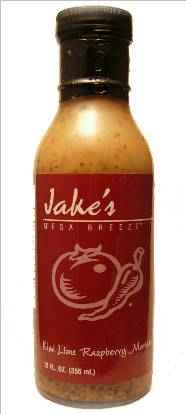How to Marinate: Master the Marinating Process for Delicious Flavors
How to Marinate: Master the Marinating Process for Delicious Flavors
Unlock the Secrets of the Marinating Process for Exquisite Flavors
Embarking on a culinary journey involves mastering various techniques, and one of the most impactful methods for enhancing flavor is the marinating process. This essential cooking technique not only tenderizes meats but also infuses them with a vibrant array of flavors. Whether you’re a home cook looking to impress at your next dinner party or a seasoned chef seeking to elevate your dishes, understanding the marinating process can transform your meals.
When you marinate, you allow your ingredients to soak in a mixture of acids, oils, and spices that work together to create delightful culinary experiences. But the marinating process is more than just dunking your proteins in liquid; it’s a science and an art that, when done right, yields delicious results!
What is the Marinating Process?
At its core, the marinating process involves immersing food, primarily proteins like meat, seafood, or vegetables, in a seasoned liquid. This liquid usually consists of an acid (like vinegar or citrus juice), oil, and various herbs and spices. The reasoning behind each component is crucial for understanding how to create the most effective marinades.
- Acids: They break down protein structure, tenderizing meat while infusing flavors.
- Oils: They help to carry flavors, keeping your dish moist during cooking.
- Herbs and Spices: They contribute aromatic flavors, providing depth and character to your flavors.
- Time: Allowing the food to sit in the marinade for adequate time is key to achieve maximum flavor penetration.
Benefits of the Marinating Process
The benefits of mastering the marinating process go beyond just delicious taste. Here’s why you should make marination a staple in your cooking technique:
- Tenderizes Meat: The acid in marinades breaks down tough muscle fibers, resulting in significantly more tender meat.
- Enhances Flavor: Marinating adds layers of flavor that simply seasoning doesn’t achieve.
- Increases Moisture: Helps to keep your proteins juicy, preventing dryness during cooking.
- Versatile Usage: Marinades can be customized for various cuisines, making your culinary options limitless.
How to Perfect Your Marinating Process
To truly reap the rewards of your marinating process, here are essential tips that will guide you to perfection:
1. Choose the Right Ingredients
Your marinating mixture should reflect the type of food you are preparing. For beef, bold flavors often work best, while chicken and fish may benefit from lighter, fresher marinades. Focus on fresh herbs and quality oils to maximize flavor.
2. Balance Your Mixture
An effective marinade is well-balanced; too much acid can overwhelm, while too little may not tenderize enough. Ideally, your marinade should be 1 part acid, 3 parts oil, and a combination of herbs and spices to taste.
3. Time It Right
How long you marinate your food is key. While tougher cuts of meat may benefit from several hours or even overnight, delicate items like fish may need only 15-30 minutes, lest they become mushy.
4. Don’t Reuse Marinades
For food safety, always discard marinades used on raw meats and never reuse them unless they are boiled first. Alternatively, set aside a portion of the marinade before adding to raw meat for basting after cooking.
Marinating Tips for Different Proteins
Each type of protein may require a slightly different approach to marinating:
Chicken
Chicken is very versatile and can be marinated with various flavor profiles. A simple mixture of olive oil, lemon juice, garlic, and herbs will impart refreshing flavors that enhance its mild taste.
Beef
For steak or roasts, consider bold garlic, soy sauce, and red wine marinades to enhance the beefy flavor. The marinating process for beef can be extensive, allowing time for the flavors to penetrate.
Pork
Pork pairs wonderfully with sweet and savory flavors. Try using a mixture including honey, mustard, and herbs, marinating for several hours, ensuring the meat is juicy and tender.
Fish
Delicate fish fillets should be marinated for shorter periods. A zesty marinade with citrus juice, olive oil, and fresh herbs works well, enhancing flavor without overpowering the fish.
Final Words
The marinating process is an essential skill that can elevate your meals to new culinary heights. With the right mix of ingredients and timing, anyone can become a master at marinating. Embrace this method and watch as your flavors explode, your proteins become tender, and your dishes impress everyone at the table.
Are you ready to take your marinating skills to the next level? Embrace the delicious journey of flavor and tenderness—start today with our expert tips and enjoy cooking like never before!


